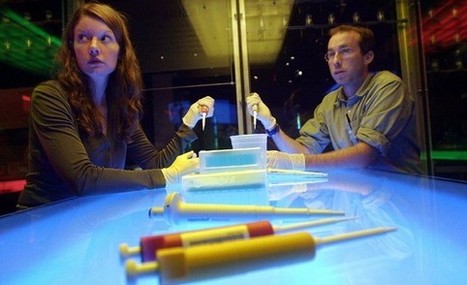GE Healthcare recently announced that Clarient Diagnostic Services, Inc., a GE Healthcare company, will begin offering a next-generation sequencing assay focused on solid tumor targets for use in clinical trials. This assay will empower researchers to perform prospective and retrospective analysis to better understand which patients will respond to particular therapies, to help stratify patient populations for ongoing clinical trials, and to aid early research efforts.
Research and publish the best content.
Get Started for FREE
Sign up with Facebook Sign up with X
I don't have a Facebook or a X account
Already have an account: Login
Live longer in good health and you will have a chance to extend your healthy life even further
Curated by
Ray and Terry's
 Your new post is loading... Your new post is loading...
 Your new post is loading... Your new post is loading...

Brian Shields's curator insight,
February 12, 2013 11:36 PM
Very good discussion on the current impact that genetic and genomic sequencing are having on clinical decisions, and a look into the future when genome analysis is much more cost effective. |

Brian Shields's curator insight,
February 4, 2013 5:44 PM
This is a great step forward in the treatment of cancer by Fox Chase Cancer Center. Hopefully in the future, similar offerings will become the standard of care. |














